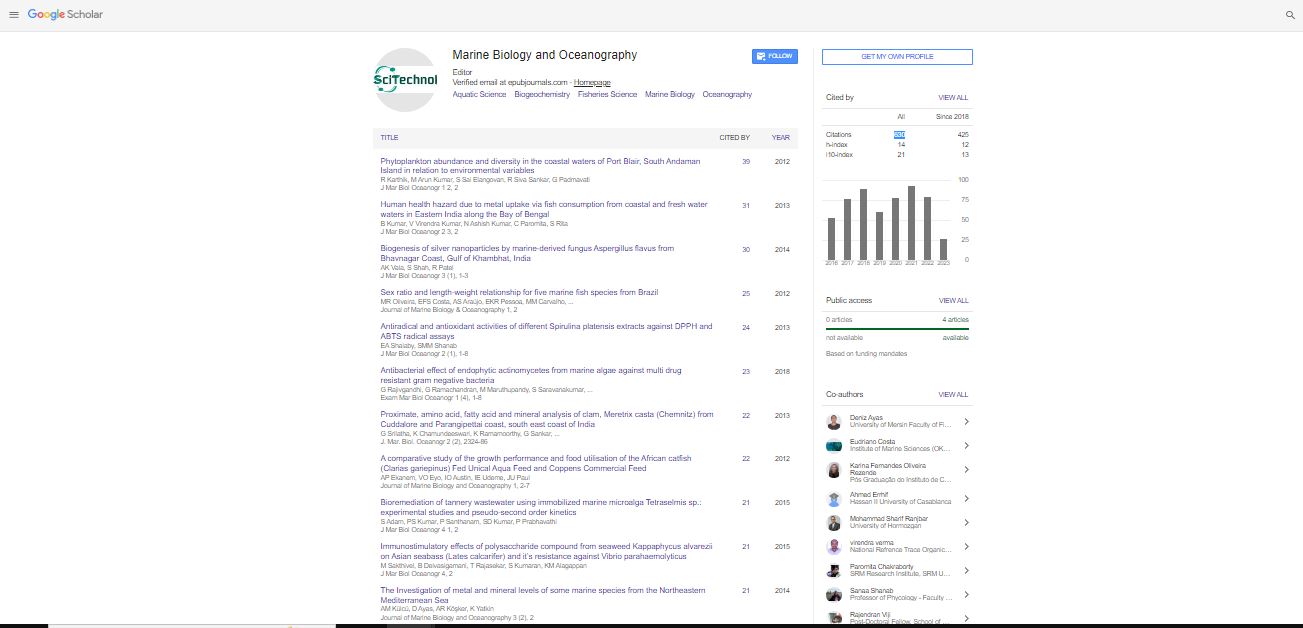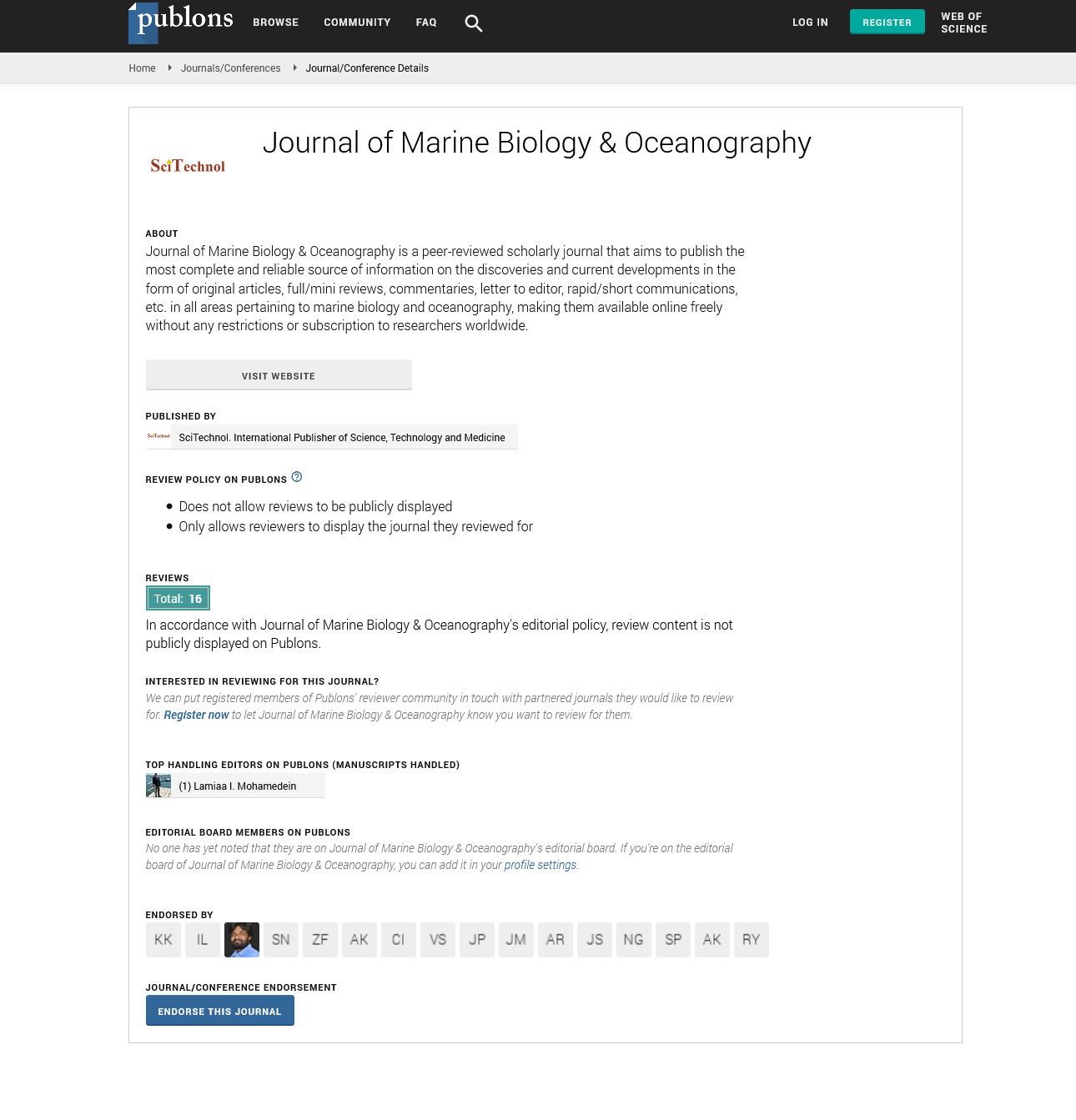The effect of thermal and saline oscillations in the oxidative stress and digestive systems of Crassostrea gigas & Crassostrea angulata
Rodrigo O A Ozorio, Pereira L, Machado J, Gonçalves J F M, Vaz-Pires P and Hinzmann M
CIIMAR, University of Porto, Portugal
University of Porto, Portugal
: J Mar Biol Oceanogr
Abstract
Environmental changes have a signiï¬Âcant negative impact on bivalve industry. Temperature and salinity variations are the cause for mass mortalities every year. To better understand the vulnerability to temperature and salinity variations, two trials were carried out in Paciï¬Âc oyster (Crassostrea gigas) (31.2±4.1g) and Portuguese oyster (Crassostrea angulata) (31.5±3.2g) for a period of 7 and 10 weeks, respectively. The C. gigas and C. angulata were separated into 2 groups: 1) submitted to a constant temperature and salinity conditions and 2) submitted to weekly oscillations. Cumulative mortality, digestive enzymes and oxidative stress parameters were analysed. Cumulative mortality was three times higher in oyster subjected to temperature and salinity oscillations, especially the C. angulata (Figure 1). Oxidative stress response was signiï¬Âcantly different between hepatopancreas and gill tissues, where the glutathione ratio (GSH/GSSG) was four times higher in gill than in hepatopancreas, suggesting a more reactive role of gill tissue. The c gigas showed higher anti-oxidant activities (catalase and glutathione s-transferase) and lower lipid peroxidation (LPO). Digestive enzymes activities were similar between species subjected to constant environmental condition. However, when subjected to thermal and saline oscillations, amylase activity decreased signiï¬Âcantly in C. angulata, suggesting an adaptive role of the digestive system of the Paciï¬Âc oyster during environmental stress.
Biography
Rodrigo O A Ozorio is a researcher at Centre of Marine and Environmental Research, Portugal. He has more than 20 years of experience in aquaculture research, special emphasis on the ï¬Âsh nutrition. He holds MSc and PhD degrees from Wageningen University and Research Centre, The Netherlands. Rodrigo has expertise on nutritional dynamics of ï¬Âsh and the economic potential of new aquaculture species based on a set of husbandry and physiological criteria. He participated in over 15 national and international projects (overall budget of 2.0 million euros), including four projects as scientiï¬Âc leader dealing with new aquaculture systems and sustainable alternative for intensive marine aquaculture. He supervised 8 PhD theses and 15 MSc theses and he authored over 56 scientiï¬Âc publications. rodrigo.ozorio@ciimar.up.pt
 Spanish
Spanish  Chinese
Chinese  Russian
Russian  German
German  French
French  Japanese
Japanese  Portuguese
Portuguese  Hindi
Hindi 
